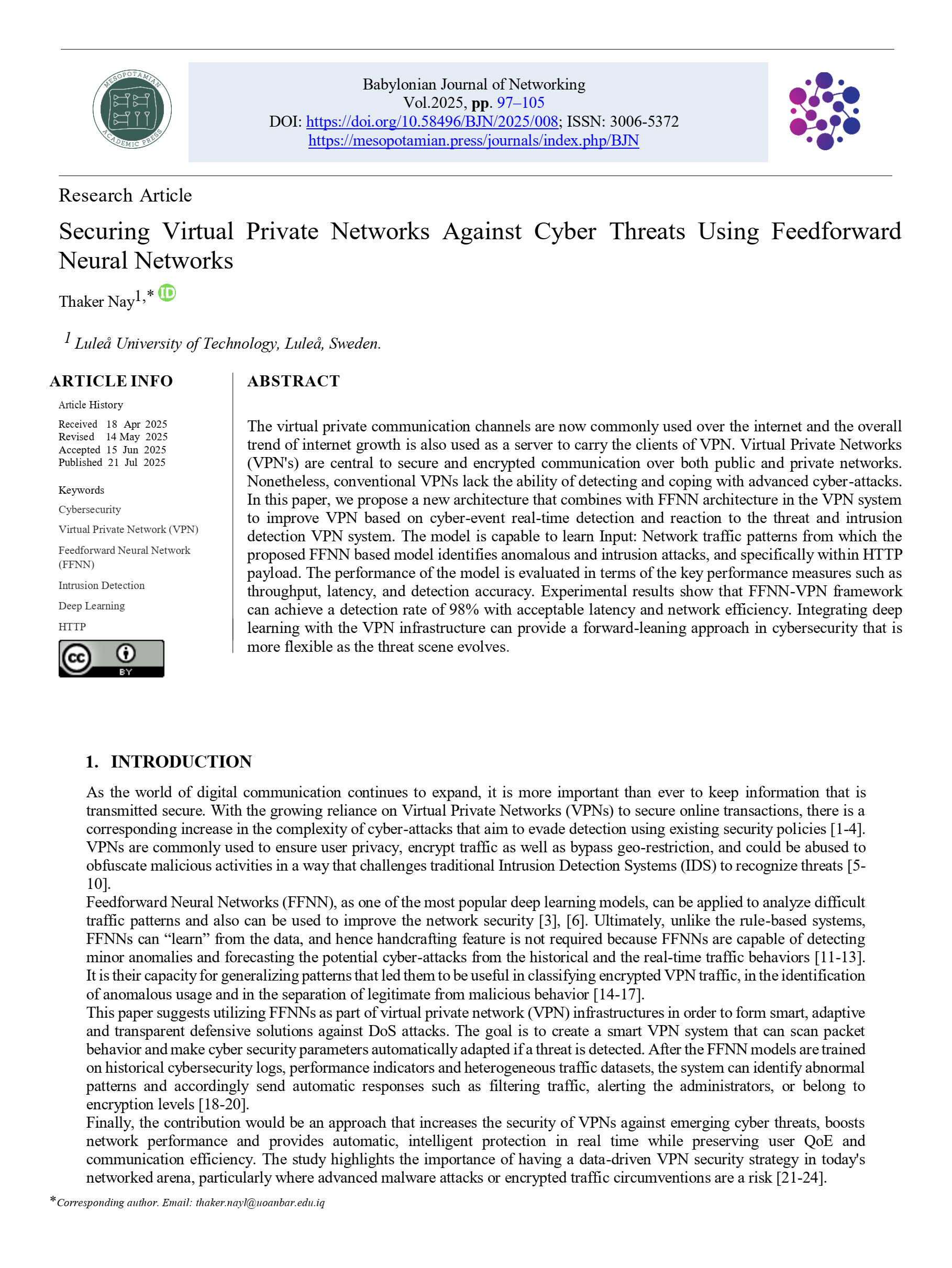Securing Virtual Private Networks Against Cyber Threats Using Feedforward Neural Networks
Main Article Content
Abstract
The virtual private communication channels are now commonly used over the internet and the overall trend of internet growth is also used as a server to carry the clients of VPN. Virtual Private Networks (VPN's) are central to secure and encrypted communication over both public and private networks. Nonetheless, conventional VPNs lack the ability of detecting and coping with advanced cyber-attacks. In this paper, we propose a new architecture that combines with FFNN architecture in the VPN system to improve VPN based on cyber-event real-time detection and reaction to the threat and intrusion detection VPN system. The model is capable to learn Input: Network traffic patterns from which the proposed FFNN based model identifies anomalous and intrusion attacks, and specifically within HTTP payload. The performance of the model is evaluated in terms of the key performance measures such as throughput, latency, and detection accuracy. Experimental results show that FFNN-VPN framework can achieve a detection rate of 98% with acceptable latency and network efficiency. Integrating deep learning with the VPN infrastructure can provide a forward-leaning approach in cybersecurity that is more flexible as the threat scene evolves.
Article Details
Issue
Section

This work is licensed under a Creative Commons Attribution 4.0 International License.
